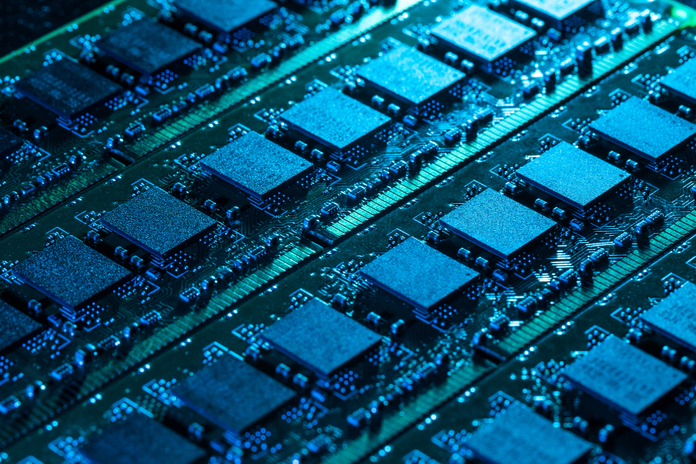Intel (NASDAQ:INTC), once a stalwart of the Dow Jones Industrial Average, is now facing the very real possibility of being removed from the prestigious index. The chipmaker’s stock has plummeted by nearly 60% this year, making it the worst performer on the Dow and putting its continued inclusion in serious jeopardy. As Intel’s struggles mount, analysts and investors are increasingly predicting that the company could lose its spot, dealing a significant blow to its reputation and market position.
The Decline of Intel’s Stock and Dow Status
Intel’s potential removal from the Dow Jones Industrial Average highlights the steep challenges the company currently faces. Once a leader in the tech industry, Intel has seen its stock price decline dramatically, primarily due to missed opportunities in the rapidly expanding artificial intelligence sector and ongoing issues within its contract manufacturing unit. These problems have not only diminished Intel’s market value but have also left it as the least influential member of the Dow, with a meager 0.32% weighting based on its current stock price.
The Dow’s selection criteria, which heavily weigh stock price over market value, further exacerbate Intel’s precarious position. Currently, UnitedHealth Group (NYSE:UNH), the highest-priced stock in the index, is valued about 29 times higher than Intel. This disparity underscores the challenges Intel faces in maintaining its place in the Dow, where higher stock prices carry more influence.
Factors Leading to Intel’s Potential Dow Removal
Several key factors have contributed to Intel’s dramatic decline and potential removal from the Dow. The company’s decision to pass on an investment in OpenAI, coupled with mounting losses in its contract manufacturing unit, has hurt its competitive position against rivals like Taiwan Semiconductor Manufacturing Company (NYSE:TSM). Additionally, Intel’s response to these challenges—suspending dividends and announcing layoffs affecting 15% of its workforce—has done little to reassure investors that a turnaround is on the horizon.
Ryan Detrick, chief market strategist at the Carson Group, noted that Intel’s potential removal from the Dow has been a long time coming, with recent disappointing results likely providing the final push needed to make this change a reality. S&P Dow Jones Indices, which manages the Dow, has declined to comment on Intel’s possible removal, but changes to the index are made as needed, with the last update occurring earlier this year when Walgreens Boots Alliance (NASDAQ:WBA) was replaced by Amazon.com (NASDAQ:AMZN).
Who Could Replace Intel in the Dow?
As speculation grows over Intel’s removal, attention is turning to potential replacements. Nvidia (NASDAQ:NVDA) is seen as a strong contender, given its meteoric rise in value this year, driven by its pivotal role in powering generative AI. Nvidia’s shares have surged more than 160% this year, making it one of the world’s most valuable companies. However, some investors are concerned that Nvidia’s volatility could make it a less ideal fit for the traditionally stable Dow.
Another candidate is Texas Instruments (NASDAQ:TXN), a century-old chipmaker with substantial production capacity within the United States. Texas Instruments’ shares have risen more than 20% this year to $211.09, bringing its stock price closer to the Dow’s average. This stability, combined with its strong U.S. manufacturing presence, makes Texas Instruments a more conventional choice for inclusion in the Dow.
David Blitzer, who chaired the S&P Dow Jones Indices’ Index Committee for over two decades, noted that in the event of a removal, a stock with a price closer to the average of current Dow constituents might be preferred as a replacement. This perspective lends weight to the possibility of Texas Instruments or a similarly priced company being selected to replace Intel.
Conclusion: The Implications of Intel’s Dow Removal
Intel’s potential removal from the Dow Jones Industrial Average would mark a significant turning point for the company, signaling a loss of prestige and potentially further depressing its already battered stock price. As Intel grapples with the challenges that have led to this point, its future on the Dow remains uncertain. Whether Nvidia, Texas Instruments, or another company ultimately replaces Intel, the chipmaker’s struggles serve as a stark reminder of the fast-paced and unforgiving nature of the tech industry.
In the coming weeks and months, investors will be watching closely to see if Intel can stabilize its position or if its removal from the Dow will become the latest chapter in the company’s ongoing difficulties.
Featured Image: Freepik















